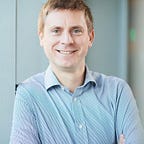Who are you betting on to change the world? Mandela or Deng Xiaoping?
Who is the most impactful leader of the past fifty years? Who inspires us to solve the tremendous challenges ahead? Whose legacy guides us to change things tomorrow?
A few weeks ago, I asked my LinkedIn network these questions. I was surprised to receive dozens of very different answers: Angela Merkel, Barack Obama, Denis Mukwege, Jacinda Ardern, Steve Jobs, Elon Musk, Mick Jagger, David Bowie etc. Yet two names stood out.
The first of them predictably being Nelson Mandela. How can one remain indifferent to the life of a man imprisoned for his ideas in horrific conditions for 27 years by a racist regime? How can one not admire the courage of a man who, having become president of his country, resisted the temptation to get revenge and instead initiated a process of national reconciliation? Mandela’s story shows how a single life can symbolize shared values and lead us towards universality. Madiba embodies justice, peace, tolerance, forgiveness or reconciliation.
But what remains of Mandela’s work twenty years later? South Africa’s GDP per capita is still at its 1980 level (adjusting inflation), meanwhile the world average has almost doubled over the same period. Whilst Mandela’s party (ANC) has remained in power, corruption has become rampant. Violent protests this summer left 120 people dead, suggesting an uncertain future for the country.
The other name that emerged from my informal poll was Deng Xiaoping. This may seem surprising at first. Who still remembers the 1.57m tall successor of Mao Zedong, who is commemorated by only a handful of monuments in his own country? Even the triumphant China of 2022 seems to have forgotten him.
Yet, if impact is measured by the number of human lives directly transformed, then no one has played a more decisive role than Deng over the past half-century. When he took over the reins of China in 1978, he inherited a battered country, weakened by harmful policies such as the “Great Leap Forward” and “Cultural Revolution”. Soviet communism meanwhile was on the verge of collapse and neoliberal Thatcher and Reagan were taking power in the West.
However, when Deng retired from power a dozen years later, he had saved his communist party and put his country on a path towards world supremacy. According to the World Bank, the reforms he implemented lifted 800 million people out of poverty. While such an impact is truly unprecedented, is it enough to warrant his inclusion as one of the greats? Deng did not make his country a democracy. Nor did he embody universal values the day he ordered tanks upon students protesting in Tiananmen Square.
Maybe this is why his name didn’t come to mind spontaneously. Perhaps it is also because his efficiency differs from our usual standard, as suggested by French philosopher François Jullien. This idea is worth further exploration
On the one hand, Mandela personified great ideas, through his speeches and his policies. Driven by the idea of incarnation, he fuelled a popular desire for change, which was materialized in a plan to reconcile South Africa through a new constitution. Barack Obama followed a similar path, in the United States of the 2010s, embodying audacity, promising healthcare for all and enacting it through Obamacare.
Jullien contrasts this “loud leadership” with the “silent leadership” of Deng Xiaoping. “There is nothing to praise from the great general” says the Art of War, the classical Chinese book of strategy and wisdom.
“There is nothing to praise from Deng either” I might be tempted to add. He seems to have applied perfectly the key principles of silent leadership outlined in the Art of War:
1. Understand the silent transformations of the world
2. Assess the potential of the situation
3. Let it mature
4. Seize the right moment, when the potential is at its maximum.
Like a surfer riding a wave, Deng silently conquered the Chinese Communist Party at the ripe age of seventy, after decades of learning and two disgraces. Within a few years and almost silently, he shifted a billion inhabitants into modernity. By doing so, he changed the face of the world.
Is silent leadership unique to Deng? Probably not. Think of how Helmut Kohl successfully managed German reunification, for example.
This leads us to the million-dollar question: should you bet on Nelson or on Deng to make the world better tomorrow? In my view, we cannot afford to choose. Human organizations should be driven by both loud and silent forms of leadership. Our societies require democracy and efficiency. The challenge is to combine both, and to allow silent leaders to emerge in the democratic sphere. The Dengs are more difficult to detect than the Nelsons. Let’s nurture our silent leaders. They too will transform the world.
